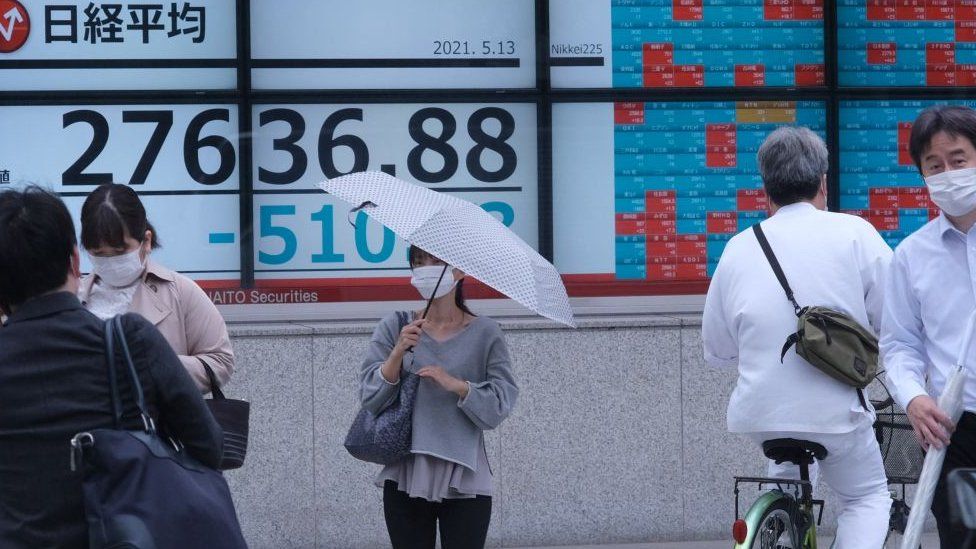
image copyrightGetty Images
Asian stock markets have fallen for a third day in a row after a shock rise in US inflation.
Thursday’s slide in Asia follows on from falls by Wall Street’s main share indexes.
On Wednesday, official figures showed that US inflation had jumped at the fastest pace in almost 13 years.
The stock market falls come as investors fret that America’s central bank may be forced to tighten its monetary policy.
Official US figures showed that inflation, which measures the rate at which the prices for goods and services increase, surged in April from a year earlier as the economic recovery picked up.
Consumer prices jumped by 4.2% in the 12 months through to April, up from 2.6% in March and marking the biggest increase since September 2008.
Some analysts have said the figures could be rising because of temporary factors like supply bottlenecks.
Off the back of the report, the Dow Jones Industrial Average lost almost 2%, while the S&P 500 fell 2.14% and the tech-focused Nasdaq index dropped 2.67%.
In Asia, the Japan’s benchmark Nikkei 225 was down by 1.8%, while the Hang Seng in Hong Kong was around 0.8% lower.
The slides in stock market around the world came as investors are concerned that higher inflation could lead the US Federal Reserve to raise interest rates more quickly than had been expected.
If the US Federal Reserve makes borrowing money more expensive to cool rising prices, it is likely to have a knock-on effect and slow the recovery of other economies around the world.
In March, US President Joe Biden signed a $1.9tn (£1.4tn) economic relief bill that saw the government send $1,400 cheques to most Americans, and last month he set out plans for more government spending on jobs, education and social care.
It has led to a build-up of savings which is now being spent as the economy reopens, driving prices higher.





